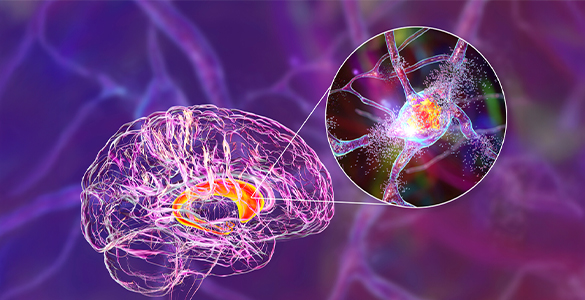Motor Neuron Diseases, or Amyotrophic Lateral Sclerosis is a growing neurodegenerative disorder that affects the nerve cells controlling muscle movement. This concern that leads to muscle weakness, paralysis, disability, and other severe concerns needs a lookout from experts that can significantly guide through the improvement of the person's quality of life. In this blog, you will understand the symptoms, causes, types, diagnosis, and treatment for MND.
What is Motor Neuron Disease?
This Motor Neuron Diseases can be considered as a neurological disorder that targets nerve cells and motor neurons that are responsible for transmitting signals and messages from the brain to the muscles. The breakdown of communication between the brain and muscles caused by the degeneration of these neurons results in muscular weakness, atrophy, and various physical and functional abnormalities. If you are facing similar difficulties and looking for an expert, take guidance from Neurologist, Rohini. Saroj Super Speciality hospital provides the best medication and solutions for all your neurological problems.
Causes of Motor Neurone Disease
- Heriditary: It is obvious that sometimes we acquire certain qualities and health issues from our families. So, if there is already history in your family, the chances are higher that you might face the same difficulty.
- Environment: If you are highly exposed to toxins or any heavy metals, that increases the risk of MDA.
- Neuroinflammatory Factors: A possible contributing factor to the illness is inflammation in the neurological system.
- Oxidative Stress: An imbalance might be caused between free radicals and antioxidants that results in damaged cells.
- Mitochondrial Dysfunction: The organelles that produce energy, called mitochondria, may be having issues.
Types of Motor Neurone Disease
There are several different types of MND, each with unique features:
- Amyotrophic Lateral Sclerosis (ALS): The most common form and relates to upper and lower motor neurons.
- Progressive Bulbar Palsy (PBP): This disease is very rare and only targets the motor neurons that control speech and swallowing.
- Progressive Muscular Atrophy (PMA): Involves mainly lower motor neurons resulting in muscle weakness and muscle atrophy.
- Primary Lateral Sclerosis (PLS): Affects primarily the upper motor neurons, causing muscle stiffness and spasticity.
Motor Neurone Disease Symptoms
Typical MND symptoms include:
- Atrophy and weakening of the muscles
- Spasms and cramps in muscles
- Stiffness and twitchiness
- Speech and swallowing difficulties
- Breathing issues
- Fatigue
- Mood swing
Treatments You Need to Focus On
Nutritional Support: It helps in the management of swallowing dysfunction and can ensure nutritionally appropriate nourishment.
Psychological and Emotional Support: It provides counseling, along with information on how to cope with the difficulties of having MND.
Palliative Care: It focuses on quality of life improvement and management of symptoms as the illness progresses.
Medications: There are some medications that can arrest the progression of the disease or can curb the symptoms.
Physical Therapy: It is helpful for maintaining muscle strength, improving ambulation, and preventing contractures.
Occupational Therapy: Provide all assistance with the activities of daily living and adaptive counsel to manage the physical changes.
Speech and swallowing therapy: Manages the problems of communication and dysphagia.
Respiratory support: In the final stages of the disease, it provides assistance in breathing.
Motor Neurone Disease is a complex and debilitating condition which affects millions of people the world over. Since there is no cure for Motor Neuron Disease, the advances in research coupled with options in treatment have been viewed by many as hope for the betterment of life for those affected by MND. A person and his/her family can navigate through the frustrations associated with the ailment in question if one knew causes, types, symptoms, and treatment options available. However, it is always suggested consulting a Neuro expert for further guidance, people from Delhi can visit Saroj Super Speciality Hospital in Pitampura.



